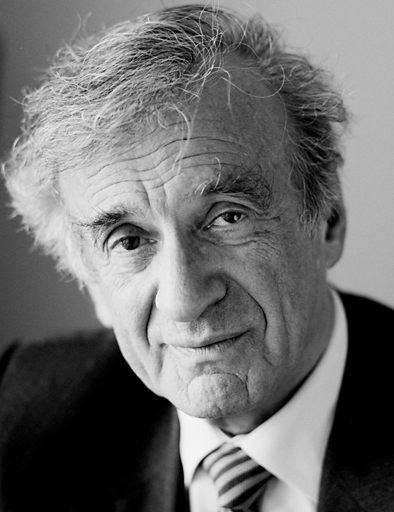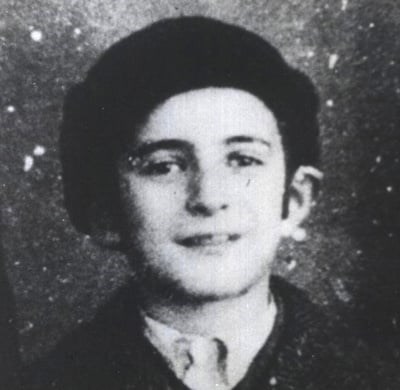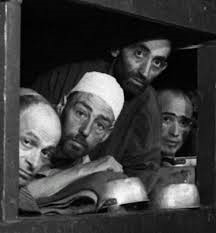 |
| Elie Wiesel |
"Sometimes we must interfere. When human lives are endangered, when human dignity is in jeopardy, National Borders and sensitivities become irrelevant. Whenever men or women are persecuted because of their race, religion, or political views, that place must- at that moment- become the center of the universe." (Elie Wiesel) Those are the words of the famous Elie Wiesel: Nobel Peace Prize winner, peacemaker, and a survivor of the Holocaust. At the young age of fifteen, Elie Wiesel and his family along with his whole community, were transported to the death camps of Nazi, Germany. Before this tragic event he was just a normal teenage boy. On September 30, 1928 Wiesel was born in Sighet, Transylvania (which is now a part of Romania). He grew up in a Jewish Orthodox family. His family owned a grocery store in Sighet where all of their neighbors went to buy their food, supplies, and goods. He had a mother named Sarah, a father named Shlomo, two older sisters named Hilda and Beatrice, and a little sister named Tzipora. His mother Sarah and little Tzipora perished in one of the most infamous death camps of the holocaust, Auschwitz. Later during their imprisonment, Shlomo Wiesel died of dysentery, starvation, and exhaustion. Many years after the war, Elie and his two older sisters found each other in Paris, France. Elie Wiesel is a Holocaust survivor and Nobel Peace Prize winner, he possess the qualities of courage, bravery and being a survivor therefore, making him a hero.
Elie Wiesel is a survivor, he went through the horrors of the Holocaust only as a child, along with millions of other Jewish people. The only thing is, he is one of the few who actually survived. Out of the 5-6 million Jews he was one of the lucky ones. The rest all perished in the death camps. A few days before they were transported by the Nazi soldiers, the families were living a normal life. Although the war was already in action, the Wiesel's and the rest of the community thought that they were untouchable. But they were very wrong. The community of Sighet thought they were being transported to "work in brick factories." That was the lie the Nazi's told them, in reality they were going there to die. Before this dreadful day life in Sighet was happy and peaceful. "Elie Wiesel was born in 1928 in Sighet, Transylvania, which is now part of Romania. He was fifteen years old when he and his family were deported by the Nazis to Auschwitz. His mother and younger sister perished, his two older sisters survived. Elie and his father were later transported to Buchenwald, where his father died shortly before the camp was liberated in April 1945." ("The Elie Wiesel Foundation for Humanity."). Wiesel's whole world was turned upside down at the of age fifteen. He was stripped of his humanity as a child. He struggled and continued to fight for his life. Elie and his father Shlomo were barely surviving in the death camps. Each camp they went to, became harder and harder to survive in. "In the winter of 1944-1945, Wiesel's foot swelled up. He went to a camp doctor who operated on him. Two days later, on January 19, the SS forced the inmates of Buna on a death march. For ten days, the prisoners were forced to run and, at the end, were crammed into freight cars and sent to Buchenwald. Of the 20,000 prisoners who left Buna, 6,000 reached Buchenwald. Upon arrival on January 29, Wiesel's father, Shlomo, died of dysentery, starvation and exhaustion." (""Elie Wiesel""). Out of 20,000 people only 6,000 of them survived. The ones who couldn't bare to run anymore were shot right then and there. Fortunately for Wiesel he was one of the 6,000 to survive. With an infected foot he still managed to run through the grueling snowy winter night. In the end, it was all worthwhile because he and other Jews were saved by American soldiers.
 |
| Young Elie Wiesel |
Elie Wiesel endured the atrocities of the concentration camps, from witnessing the hangings of children to watching his own father die. That along with many monstrosities no child should ever witness, makes him brave. Elie Wiesel witnessed things that no person or child should ever have to see. There's a wide variety of the horrors that took place.Wiesel, witnessed his former friend beat his own father to death over a piece of bread. It is quite the mentally exhausting to go from living a normal life, to being a prisoner in a concentration camp. "He was fifteen years old when he and his family were deported by the Nazis to Auschwitz. His mother and younger sister perished, his two older sisters survived. Elie and his father were later transported to Buchenwald, where his father died shortly before the camp was liberated in April 1945." ("The Elie Wiesel Foundation for Humanity."). Elie Wiesel was ONLY fifteen years old when he and his family were taken to death camps. Fifteen years old! That is the time in a boy's life that's supposed to be some of the best, and yet they were the worst for him. He witnessed the deaths of many people, his own father dying right next to him, not even knowing if any of his other family members were even alive. That takes serious bravery. Wiesel wasn't even trying to be brave. He had to survive. At this point, many people had lost faith in God and gave up on life. " In 1944, during World War II, Elie, his parents, his three sisters - and his 15,000 Jewish neighbors in Sighet, Hungary - were captured by the Nazis, put into cattle cars and shipped off to concentration camps at Auschwitz, Buna, Birkenau and Buchenwald." ("Oprah Talks to Elie Wiesel."). Elie Wiesel was deported along with his family and friends to Auschwitz, a death camp where all Jews were sent to either be slaughtered or prisoners of war. Luckily (or unluckily) he was not killed. He was a prisoner of war. He went through four different camps and witnessed many torturous acts of the Nazi's towards innocent Jews. Elie Wiesel is a very brave person, because he lived through the horrors of the concentration camps of Nazi, Germany at such a young age. He continues to be brave today by re-living the memories of the death camps and fighting for the freedom of people all over the world.
 |
| Elie Wiesel in a Concentration Camp (far right) ( |
It takes great courage to endure what Elie Wiesel went through. He would have to be willing to do whatever it took to survive. Elie Wiesel has been through unspeakable acts of evil. He's had to deal with the loss of almost his entire family, witnessed the death of his own father, and has haunting memories of the past. . "A devoted supporter of Israel, Elie Wiesel has also defended the cause of Soviet Jews, Nicaragua's Miskito Indians, Argentina's Desaparecidos, Cambodian refugees, the Kurds, victims of famine and genocide in Africa, of apartheid in South Africa, and victims of war in the former Yugoslavia." ("The Elie Wiesel Foundation for Humanity.") Elie Wiesel was courageous because he witnessed the beatings, the burnings, and the torture of his friends and family. Even though he witnessed those horrible things, Wiesel still maintained his sanity and did not lose his mind, that can be incredibly traumatizing. Despite all Wiesel has been through, he has risen to be become one of the most recognized names in history. It is absolutely amazing what he has done for the world. "Eliezer "Elie" Wiesel is a noted Holocaust survivor and an award winning novelist, journalist, and human rights activist. He is also a Nobel Prize laureate in World Peace." (""Elie Wiesel""). Elie Wiesel, survivor of the Holocaust overcame the traumatizing memories of the death camps he had unwillingly inhabited. He became a Nobel Prize laureate in World Peace. After all he went through he managed to make himself into a person who is an inspiration to all. After going through Adolf Hitler's reign, he tried to maintain a normal life. He healed, got an education, and used his experience's not for fame, but for the awareness of the Holocaust and to educate people on what it was like living in the walls of one of the most infamous concentration camps, Auschwitz.
Courageous, brave, and a survivor- this is Elie Wiesel. Elie Wiesel is an astonishing human being. He is an inspiration to all because he is so kind hearted and so peaceful, even after everything he has been put through by the Nazi's. Wiesel continues today to fight for freedom and peace for many people around the world. He does this work because he does not want people to go through what he once went through. Elie Wiesel is an inspiration to me because he managed to maintain his sanity after living through the nightmare that we call the Holocaust. He forgave the Nazis! That is absolutely insane to me. Crazy, that someone could be so forgiving after all the things the Nazis put him, and millions of other Jewish people through. Today, he has regained his faith in God and continues to inspire many people everyday. Wiesel is still alive today at 86 years old and has a son and a wife. Would you be strong enough to forgive the people who not only killed your family, but attempted to kill your entire race? That is something to really think about. To be honest, I don't think that I personally would have the strength to do that. Elie Wiesel on other hand, he forgave them. He had the strength to forgive the abominations who had committed inhumane acts of evil that were put upon his friends, family, and millions of other innocent people. That is what it takes to be a true HERO.
Page created on 8/6/2015 12:00:00 AM
Last edited 8/6/2015 12:00:00 AM
